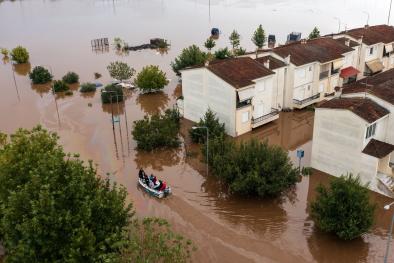Science Source
The 21st century Colorado River hot drought and implications for the future
This paper is the first to show the large role that warming temperatures are playing in reducing the flows of the Colorado River.
Jonathan Overpeck, study co-author and Regents’ Professor of Geosciences and of Hydrology and Atmospheric Sciences and director of the University of Arizona Institute of the Environment
- States that the period between 2000 and 2014 was the worst 15-year drought in the Colorado River Basin on record, with annual flows that were 19% below the 1906-1999 average
- Finds that unprecedented temperatures (0.9°C above the 1906-99 average) were responsible for at least one-sixth to one-half (average of one-third) of flow reduction
- Finds that, while warming is expected to continue due to ongoing greenhouse gas emissions, neither observations nor climate models suggest a trend towards greater precipitation in the Colorado Basin
- Highlights significant risk of decade-long and decades-long droughts in the next 100 years that will likely offset any increase in mean precipitation
- Finds that unabated warming will spur temperature-induced flow declines ranging from -20% to more than -30% by mid-century and from -35% to more than -55% by end-century
- Concludes that, though precipitation increases may mitigate these losses to some extent, such increases are not evident at this time and models do not agree on future precipitation changes
- Concludes that Colorado River flows will be more severely affected by climate change than currently assumed, particularly if greenhouse gas emissions are not significantly reduced
Related Content
Science Source
| American Meteorological Society
Getting ahead of Flash Drought: From Early Warning to Early Action
Jason A. Otkin, Molly Woloszyn, Hailan Wang et al
Science Source
| American Meteorological Society
Flash Droughts: A Review and Assessment of the Challenges Imposed by Rapid-Onset Droughts in the United States
Jason A. Otkin, Mark Svoboda, Eric D. Hunt et al
Science Source
| Nature Climate Change
Rapid intensification of the emerging southwestern North American megadrought in 2020–2021
A. Park Williams, Benjamin I. Cook & Jason E. Smerdon
Headline

Oct 26, 2023 | Climate Nexus Hot News
The Planet is ‘Under Siege,’ Scientists Say


